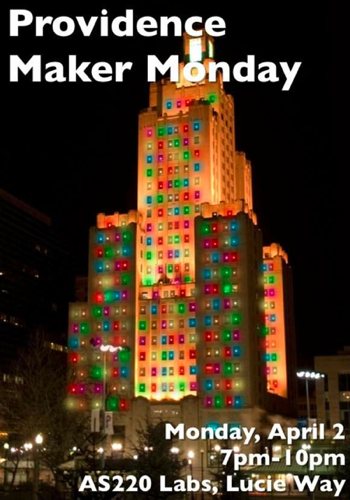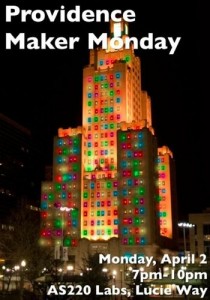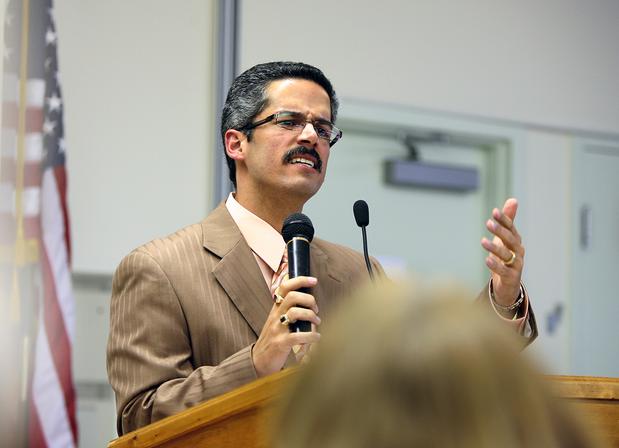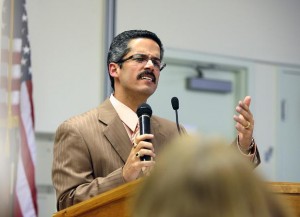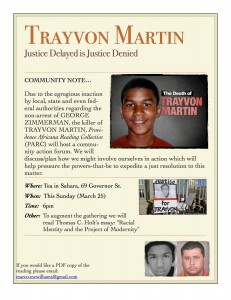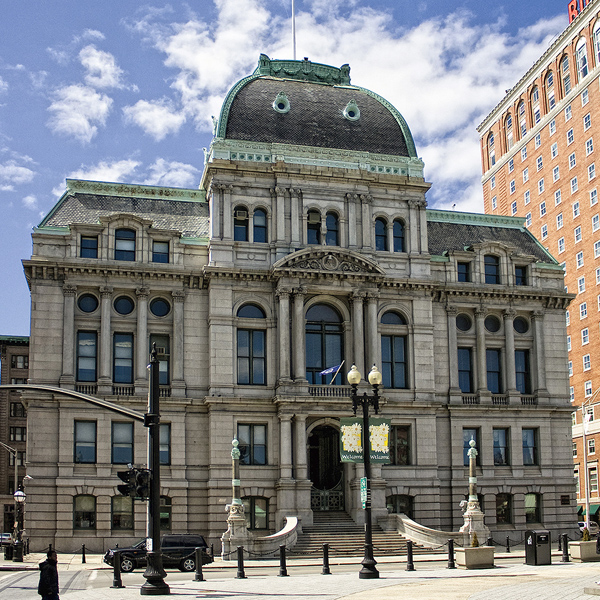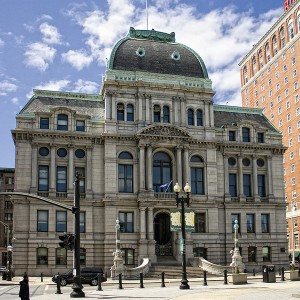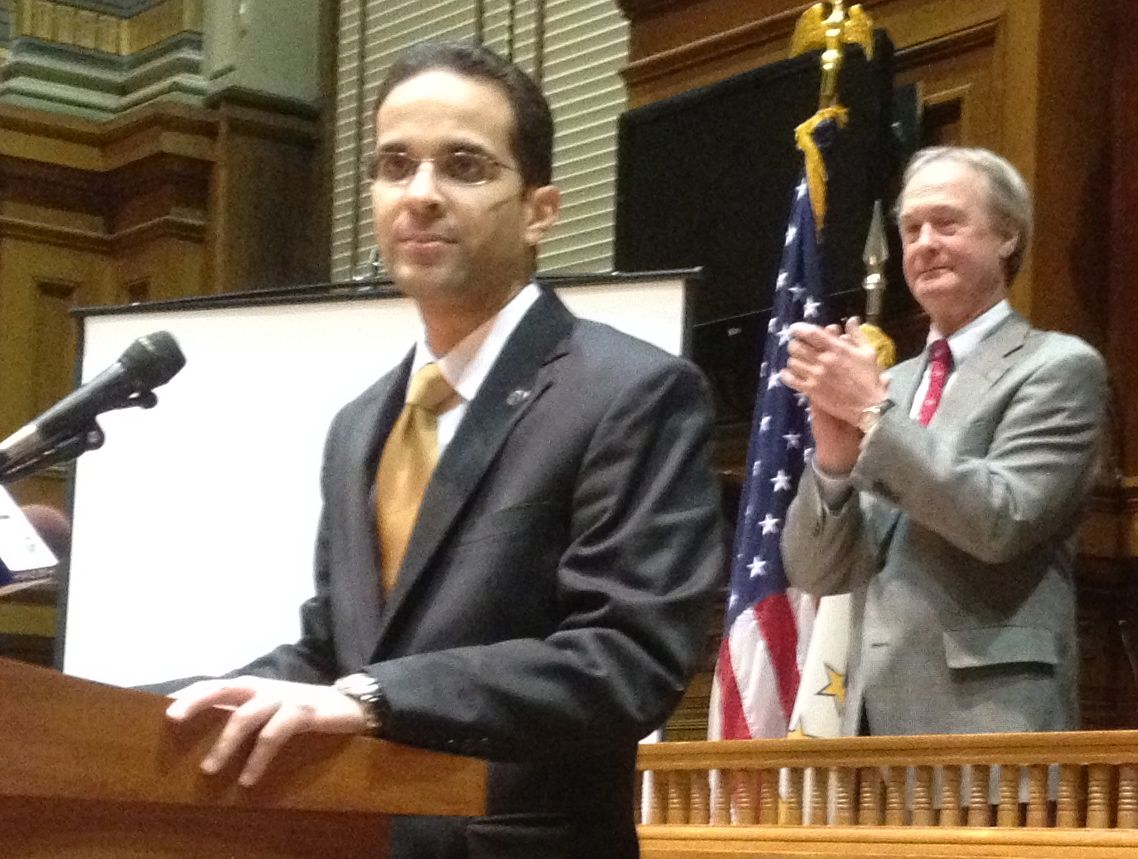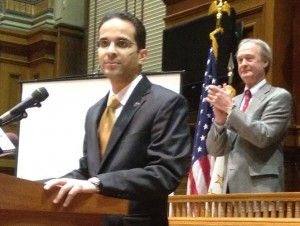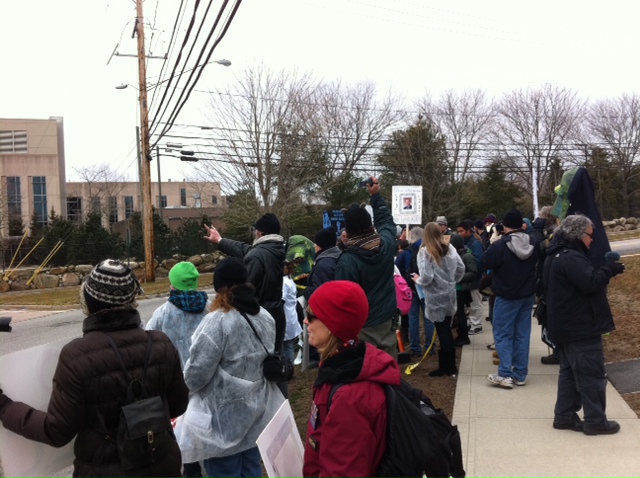
Bob Plain asked me to keep the focus of this blog on the progressive aspects of my campaign. (And thanks, Bob, for standing up for the rights of the free press — particularly in an election.) I’ll do my best, but the writer in me also thinks that the strange things you need to do as a politician are interesting to all readers—not just progressives.
So, I’ll be doing a bit of both.
Disclosure: Yes, I’m running for office, so everything I write will probably be self-serving and “designed” to get me elected. Take it all with a grain of salt. (Or sodium substitute.)
If you want a more personal essay, I wrote about my experiences campaigning on July 4 on the Campaign site.
Grassroots vs. Entrenched
Whenever I introduce myself and say that I’m running for Representative to the RI House from District 4 there is a long pause and people ask, “Isn’t that Gordon Fox’s District? He’s the entrenched speaker of the House. He’ll have all sorts of people supporting him.”
I smile and (like a good politician) reply, “There are 10,000 voters who live in this district. I’m one of them.”
Then they ask me, “Are you insane?”
This is usually followed by a long explanation that my opponent is entrenched, has the support of everybody, hundreds of thousands of dollars in the bank, and how unworkable and dirty Rhode Island politics can be.
To which I reply, “Then you certainly ought to vote for me.”
A few days ago, I got an email from a constituent:
Your candidacy is already making a difference, as Fox wants to win back his marriage equality constituents.
Answering Mr. Fox on 38 Studios
Gordon Fox doesn’t know. He just doesn’t know. (“I don’t know,” he says, on Fox news, June 7.) I’m no sure why he doesn’t know, but he doesn’t.
The basic idea behind the 38 Studios deal was this wager
- If we win, we get 400 high paying jobs in Rhode Island that cost the taxpayer a cent
- If we lose, we lose millions upon millions of dollars and all the jobs.
Because of this candidacy, Gordon Fox has increased his communications with the press about the 38 Studios disaster. (Listen on RIPR. Read in the Providence Journal NOTE: The printed edition of the story differs dramatically from the online version. An interesting shift in history being rewritten as it happens.)
The salient points are this: Mr. Fox trusted that the EDC was going to keep track of things, and didn’t have any checks or balances in place to protect the state of Rhode Island.
Did they? Back in June, Mr. Fox said, “I don’t know.”
I understand that public officials have to trust the people who are working for the citizens of the state. That said, I am fed up with our government giving away tax payer dollars with no concrete backend or long-term payoff.
Some tax breaks benefit… Some not so much.
Do tax reduction incentives and credits bring in business? Sure. Do these reductions and incentives create loyalty? Absolutely not.
The Film and TV credits provided jobs and got movies made and dollars spent here. But movies are by nature short term projects. The Historic Tax credits (by and large) got buildings reconstructed and rebuilt infrastructure that is still standing, regardless of the economic health of the corporation.
Time and again we’ve cut taxes, given credits and breaks and seen projects collapse without benefiting the state, or companies flee Rhode Island when these benefits are done and they’ve made their profits.
Repeat after me: major corporations are loyal to their shareholders, not the citizens of Rhode Island.
Update
For a while, I got caught with the rhetoric that Rhode Island was offering “Loan Guarantees” and it wasn’t going to cost us anything. I was wrong. We, the taxpayers, sold bonds and have to pay them back. Kudos to Gina Raimondo for insisting we own up to the debt.
With unemployment up and the economy down, how are we going to pay them back?
Revamping Education vs. Power… at the 11th hour
One of the key issues in my campaign is a very simple shift in the way this State deals with public education.
I believe that the use of high stakes testing to determine school financing and teacher evaluations is a misdirected travesty. It’s bad for the students, bad for the teachers and good for the testing companies and consultants.
Here’s an equation. An “A student” and a non-English speaking student take a test. One scores 100%. The other gets a zero. The average? 50%, which means that school is failing. Never mind the teachers, potential of the students to learn more or the curriculum…
Yes, I know there is a ton of federal money tied into this, but how much money would we save if we weren’t spending our time on testing, test prep, test evaluation and test intimidation? More important, how much more would students learn if they weren’t losing class time to testing?
The other week I was listening to NPR, and Diane Ravitch, the former head of education under George H. W. Bush, said something that clicked. I’m going to paraphrase:
Testing kills innovation and creativity. You don’t teach a kid to love and play baseball by testing them on it. You don’t start by teaching them the rules, then give them a test. Then next year, you make them memorize the history of the game to World War II (including the Negro Leagues) . Then give them a test. Next year it’s Post War baseball. Then a test. Then you have options. You can study the statistics of baseball (with tests) or the chemistry and biology of baseball (with tests on testing). Then, to celebrate, they’ll take you to a ball game.
Legislative bodies can pass laws, repeal laws, change laws, or leave things alone. When it comes to testing, I recommend that we back off. Let the schools and teachers use tests to understand what the students need to learn — so that they can teach those students, not as proof one way or another that something is failing or succeeding.
What did Mr. Fox do about education?
In addition to approving full-steam ahead testing, Mr. Fox and the gang decided on a different approach. They thought that a mashup of the Board of Higher Education (the colleges and university) and the Board of Regents (K-12) would save money and be… better. Never mind that pretty much everyone in those departments was opposed. Never mind that the public didn’t know about it. The whole process was taking too long, so they decided to just jam it into the budget at the last minute, and tell everyone, tough. (R.I. House passes plan to merge education boards, Providence Journal.)
Will it work?
Answering Mr. Fox on Marriage Equality
Recently, Gordon Fox promised that if he’s re-elected, he will run for Speaker of the House, and if he wins that, he will push for an immediate vote legalizing same-sex marriage in Rhode Island.
Yaay! Whoo hoo! (About time.)
As a supporter of marriage equality, I applaud my opponent and am glad that regardless of whomever wins this election the Rep from District 4 will cast a vote for this important piece of law.
Why didn’t Mr. Fox push it through using all the power at his disposal as the Speaker of the House? “I don’t know.”
Personally, I wish that years ago, when we had the chance to be the first state in the Union to legalize same-sex marriage, we’d done so. If we had, Rhode Island would have gotten all the tourist dollars from same-sex couples wishing to get married in our beautiful state.


 Peter Montequila, the owner of Finest Car Wash has stated a variety of reasons for having erected a cross on a publicly owned median strip on Pleasant Valley Parkway in Providence. According to one story the cross was built because the Fourth of July (or Memorial Day) was coming up. Montequila also claims he placed the religious symbol there to demonstrate solidarity with those who want the war memorial topped with a cross in Woonsocket to stay on public land. On the other hand, perhaps Montequila feels entitled to act as he did, having maintained the median by mowing the lawn, installing a sprinkler system, and planting flowers as part of what appears to be a city sponsored adopt-a-spot program. Still another reason for the cross, according to the owner, is that he seeks to honor veterans.
Peter Montequila, the owner of Finest Car Wash has stated a variety of reasons for having erected a cross on a publicly owned median strip on Pleasant Valley Parkway in Providence. According to one story the cross was built because the Fourth of July (or Memorial Day) was coming up. Montequila also claims he placed the religious symbol there to demonstrate solidarity with those who want the war memorial topped with a cross in Woonsocket to stay on public land. On the other hand, perhaps Montequila feels entitled to act as he did, having maintained the median by mowing the lawn, installing a sprinkler system, and planting flowers as part of what appears to be a city sponsored adopt-a-spot program. Still another reason for the cross, according to the owner, is that he seeks to honor veterans.

















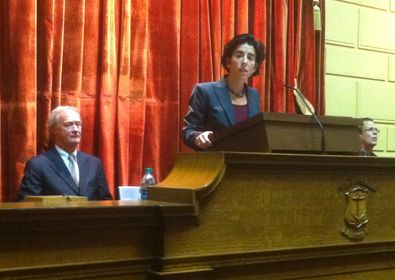
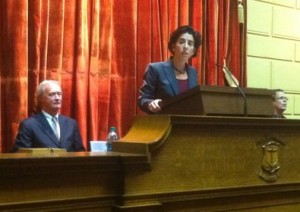
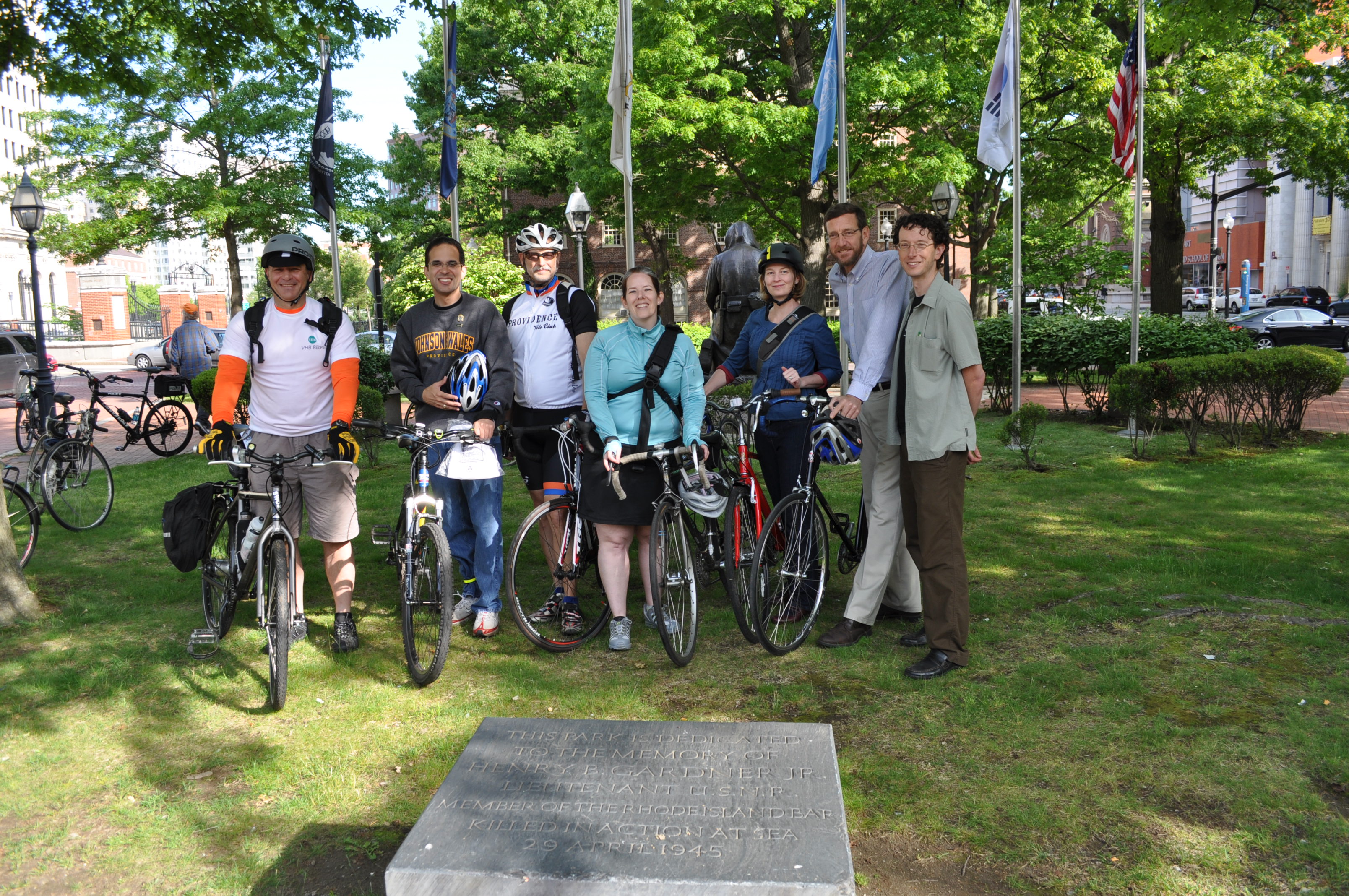
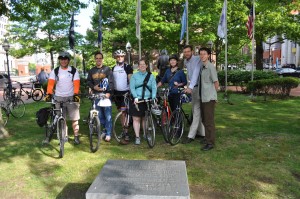


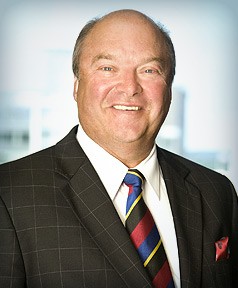


 Rhode Island is home to one of the fastest growing agricultural sectors in the U.S. Its diversity of farmers’ markets throughout the state, urban education programs on farming and nutrition as well as food delivery programs for restaurants makes this the place to be when it comes to growing it…and consuming it locally!
Rhode Island is home to one of the fastest growing agricultural sectors in the U.S. Its diversity of farmers’ markets throughout the state, urban education programs on farming and nutrition as well as food delivery programs for restaurants makes this the place to be when it comes to growing it…and consuming it locally!